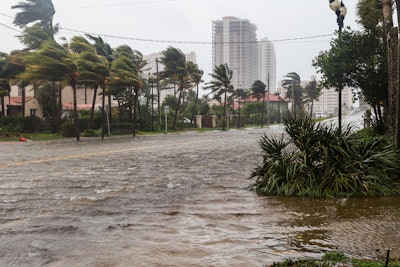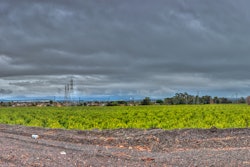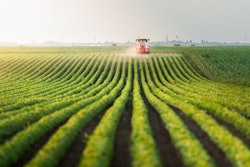
The U.S. food and agriculture sector has faced numerous challenges over the last few years as the pandemic fueled an increase in consumer demand, rising input costs, labor shortages and more. While these challenges persist, it’s also crucial to recognize natural disasters as a major — yet largely overlooked — issue impacting the sector and causing disruptions in the U.S. food supply chain.
In 2022, natural disasters cost $313 billion in global economic losses, with 75% of the insured losses occurring in the U.S. Such events only continue to grow in frequency and severity due to climate change — the United Nations predicts that an alarming 560 natural disasters will take place each year by 2030.
Data aside, it’s hard to come across an individual who hasn’t been negatively impacted by a natural disaster in their lifetime. In fact, the nation is currently witnessing ongoing extreme weather events, which have resulted in displaced residents and a massive economic burden extending to the farming industry.
After a series of severe winter storms, California’s formerly dead Tulare Lake reemerged in March, while surrounding roads, farms and houses in local communities experienced historic flooding. To make matters worse, the adverse effects could continue. The lake may have recently reached its peak size as snow from the Sierra Nevada mountain range melted into the river that feeds the basin.
The affected nearby communities are home to essential crop production. While these areas only account for a portion of California’s massive $50 billion agriculture industry, potentially billions of dollars in crop losses could occur among plants that produce fine-quality materials like cotton. Strawberries, leafy greens and tomatoes are among some of the other crops that may become more limited and expensive this summer due to the Tulare Lake flooding.
In addition, El Niño has arrived for the first time in nearly four years. The warmer-than-average sea-surface temperatures could result in disastrous impacts — certain regions might soon experience power-grid blackouts, flooding, drought and wildfires. In abnormal weather conditions, crops such as palm oil, sugar, wheat, cocoa and rice may struggle to thrive.
According to Bloomberg, acute food insecurity has already reached a record high of 222 million people, and the 2015-16 El Niño led to a higher malnutrition rate. With worsening natural disasters adding pressure on the farming industry and impacting essential crops, food distribution and security issues might intensify.
While we may not be able to prevent large-scale flooding or an impending El Niño, private-sector companies play a key role in risk-reduction for these events, as well as the recovery efforts when natural disasters strike. It’s important that we not only recognize them for their unwavering support, but fund, invest and hire them for the protection they offer to our vulnerable communities.
Any issues with the power grid during the California floods may have been mitigated by generator manufacturers. Additionally, companies involved in water management, sanitation and flood control could help address potential contamination of farmland.
Further, engineering and construction firms develop flood disaster-preparation plans, design and build seawalls, engage in dredging services to manage water flow, and design resilient infrastructure and water management systems.
The consequences can extend to other areas of our lives, creating agricultural and food-supply-chain problems with serious implications for the U.S. economy. Private-sector companies play a huge part in mitigating that risk and helping communities navigate the distress of disasters by providing solutions.
As we continue to brace for the effects of Tulare Lake and El Niño, along with any other natural disasters this season, remember the companies on the front lines — generator manufacturers, flood control companies, engineering firms and more. It’s important to support the private sector so they can provide the products and services needed for both prevention of and recovery after natural disasters.




















